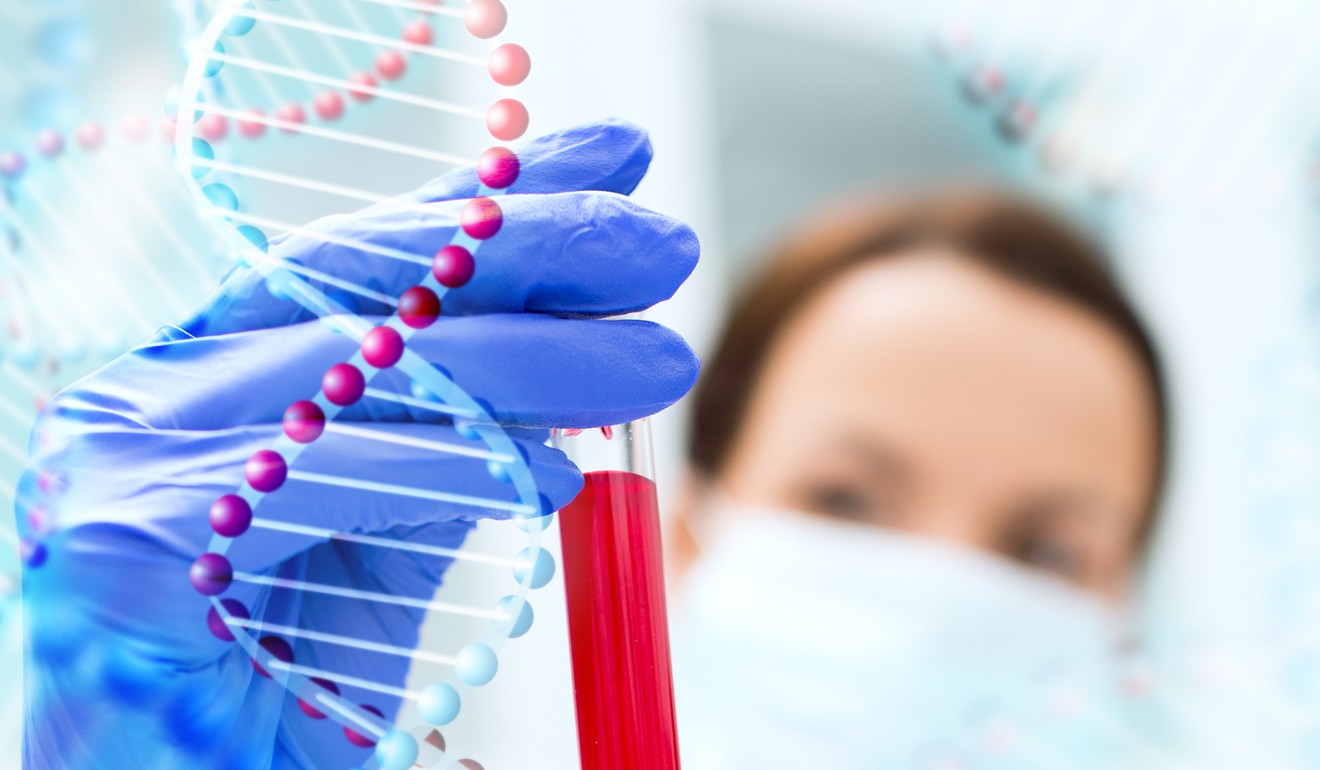
Hong Kong’s cancer DNA tests industry gets a boost as Taiwanese provider ACT Genomics opens lab
- Taiwan-based ACT Genomics opens a HK$20 million laboratory at the Science Park in Sha Tin to process cancer patients’ samples
- The five-year-old firm, based in Taipei, aims to build a regional network of self-operated and joint venture labs

Hong Kong’s cancer DNA tests industry has received a shot in the arm from Taiwan-based ACT Genomics opening a HK$20 million laboratory at the Science Park in Sha Tin to process cancer patients’ samples.
The five-year-old firm, based in Taipei, aims to build a regional network of self-operated and joint venture labs.
“We want to become Asia’s most important DNA tests provider [for cancer patients],” ACT’s chief executive Chen Hua-chien told reporters on Thursday after the lab’s opening ceremony. “We plan to achieve this by setting up our own labs as well as forming partnerships in markets that are difficult to enter.”
More nations in Asia are expected to tighten regulations that will make exporting DNA materials for testing overseas more burdensome and less efficient, he noted.
In one such market, Japan, ACT has formed a partnership with Canon Medical System – a medical imaging unit of optical equipment giant Canon – to open a lab.
In mainland China, where the collection of DNA samples by foreign firms is banned and the export of human DNA material is restricted to scientific research, ACT is in talks with potential partners.
ACT has performed DNA tests on over 7,000 cancer cases in Asia, including around 450 in Hong Kong.
The costs range from US$1,000 to over US$4,000 each, depending on the number of genes being profiled.

The firm is trying to convince private insurers in Taiwan and Hong Kong to provide the tests to their clients as part of their coverage. Both places’ public health insurance schemes do not cover such tests.
“The tests’ costs are a fraction of the costs of treatments, but could potentially make big improvements to treatment outcomes and reduce costs,” Chen said.
Its rivals include Hong Kong’s Sanomics, backed by conglomerate New World Development’s parent Chow Tai Fook Enterprises and Shenzhen-based Berry Genomics, besides Singapore’s Lucence Diagnostics.
Since inception, ACT has raised US$50 million from investors.
Shareholders include Hong Kong Science & Technology Park’s corporate venture fund, Japanese venture capital firm Jafco, Asia-focused investment firm CLSA, Singapore’s UOB Venture Management, Taiwan financial institutions and wealthy individuals in Taiwan and Hong Kong.
Chief financial officer Victor Chan said the company is in talks to raise another round of private funding ahead of a potential initial public offering in Hong Kong. He declined to give a time frame.
York Chow Yat-ngok, an orthopaedic surgeon and a former Secretary for Food and Health in Hong Kong, said hundreds companies globally offer DNA tests to assess healthy people’s cancer risks, but post-diagnostic DNA test providers are far less numerous.
“The former can tell if people’s DNA make-up means they are more prone to developing certain types of cancers some time in their life, but such tests often raise questions that cannot be answered, such as what to do next,” he said.
Post-diagnostic tests profile the genetic make-up of people already diagnosed with cancers, to help identify the treatment most effective for them.
“More importantly, they can tell which treatment options are not effective so that time and resources will not be wasted,” he added.